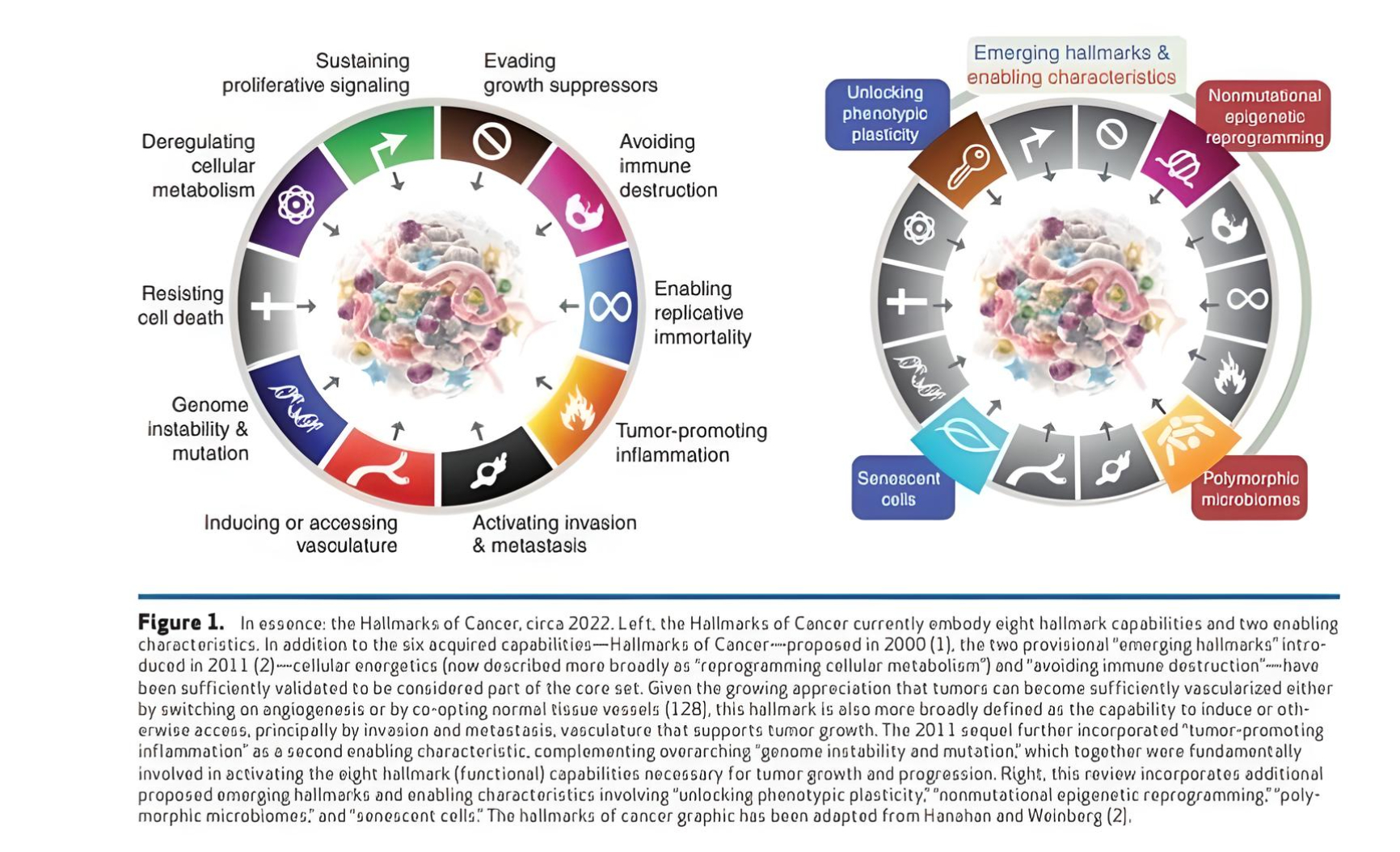María Natalia Gandur Quiroga posted on LinkedIn:
“Fantastic article! One of the most anticipated!
New Insights into Cancer Biology: Hallmarks of Cancer: New Dimensions by Dr Douglas Hanahan!!
Abstract Overview:
The article presents an enhanced understanding of cancer’s complexity, proposing new dimensions to the existing hallmarks of cancer framework.
These new aspects include phenotypic plasticity, nonmutational epigenetic reprogramming, polymorphic microbiomes, and the role of senescent cells in the tumor microenvironment.
Introduction and Background:
Initial hallmarks of cancer identified crucial capabilities in cancer cells for malignant tumor formation.
The original six hallmarks were later expanded to eight, encapsulating core cancer behaviors.
The article emphasizes the importance of refining and expanding the hallmarks concept with emerging scientific evidence.
Key Findings and Messages:
1. Unlocking Phenotypic Plasticity:
Proposed as a new hallmark, it describes how cancer cells evade terminal differentiation to maintain or regain proliferative capacity.
Examples include dedifferentiation in colon cancer and melanoma, and blocked differentiation in leukemias.
2. Nonmutational Epigenetic Reprogramming:
Suggested as an enabling characteristic, separate from genetic mutations.
Epigenetic changes influence gene expression and cancer hallmarks without altering the DNA sequence.
Influences include microenvironmental factors like hypoxia and nutrient deprivation.
3. Polymorphic Microbiomes:
Emerging evidence suggests microbiomes, especially in the gut, play a critical role in cancer development and response to therapy.
Microbiomes may affect cancer by modulating the immune response and inducing genetic mutations in host cells.
They might serve as enabling characteristics, influencing the acquisition of cancer hallmarks.
4. Senescent Cells in the Tumor Microenvironment:
Senescent cells, once thought to suppress tumorigenesis, may actually promote cancer under certain conditions.
They can influence tumor progression through their senescence-associated secretory phenotype (SASP).
Senescent cells in the tumor microenvironment contribute to various cancer hallmarks, including promoting inflammation and altering immune responses.
5. Concluding Remarks:
The article encourages ongoing discussion and investigation in the cancer research community.
These new dimensions could refine cancer treatment strategies and our understanding of cancer biology.”
View additional information.
Source: María Natalia Gandur Quiroga/LinkedIn
Maria Natalia Gandur Quiroga is a Medical Oncologist and Chief of the Division of Genitourinary Medical Oncology at the Instituto de Oncología Ángel H. Roffo in Buenos Aires, Argentina. She is a Professor of Medicine at the University of Buenos Aires at the Oncologists Post Graduates Studies. Her research focuses on clinical trials with aims to improve the treatment of patients with urologic tumors. She is an active member of the European Association for Cancer Research, Argentinian Medical Association and American Society of Clinical Oncology.


